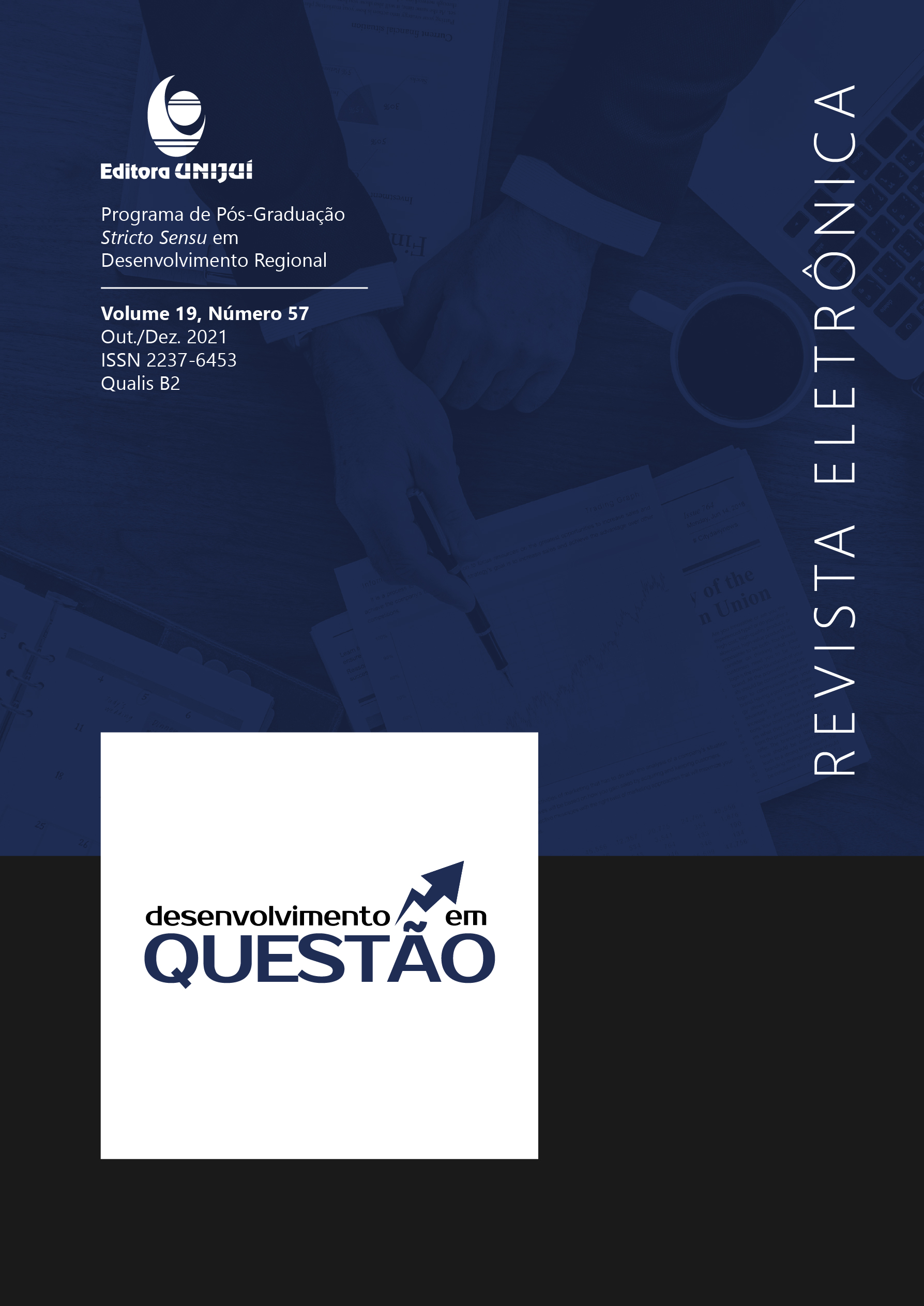COMMUNITIES THAT SUPPORT AGRICULTURE (CSAs): MATERIALIZING SUSTAINABLE ASSOCIATION AND THE SOLIDARY ECONOMY?
COMMUNITIES THAT SUPPORT AGRICULTURE (CSAs): MATERIALIZING SUSTAINABLE ASSOCIATION AND THE SOLIDARY ECONOMY?!
DOI:
https://doi.org/10.21527/2237-6453.2021.57.11935Keywords:
Regional development. Socio-environmental. Family farming. Shared Management. Mutual help.Abstract
The alliance between consumers looking for tasty, nutritious and organic foods and family farmers, socially, economically and culturally undervalued, represents a significant step at the moment, as they agree with a sustainable agricultural body, called, in Brazil, Communities that Support Agriculture ( CSAs). This organic and natural agricultural model, with a short production circuit, which eliminates middlemen, is based on values of solidarity economy, self-management and mutual help. This article aims to assess the sustainability of CSAs surveyed in the social, environmental and economic dimensions, seeking to verify the effectiveness of the principles and values of the solidarity economy. As the locus of the research, two communities in the State of São Paulo were determined. The methodological design included visits to CSAs and the application of questionnaires for farmers responsible for CSAs, covering the following categories: constitution, production, records and accounting. Qualitative and quantitative research were used as methodologies to describe the actions of the managers, the period and the regions studied, as well as to assess the similarities and numerical differences of the CSAs. Thus, it was found that these organizations are constituted; have been operating for more than five years; have an area of more than four and a half hectares; they are made up of more than three farmers and 35 co-farmers; farmers are wage earners; and do not use pesticides. These results allowed the establishment of parameters to support improvements, including in the functionality of the CSAs surveyed through the presentation of proposals to optimize resources and advances in academic research in favor of these models of agricultural organisms.
Downloads
Published
How to Cite
Issue
Section
License
By publishing in Revista Desenvolvimento em Questão, authors agree to the following terms:
All works are published under the Creative Commons Attribution 4.0 International License (CC BY 4.0), which allows:
Sharing — to copy and redistribute the material in any medium or format;
Adaptation — to remix, transform, and build upon the material for any purpose, even commercially.
These permissions are irrevocable, provided that the following terms are respected:
Attribution — authors must be properly credited, a link to the license must be provided, and any changes made must be indicated.
No additional restrictions — no legal or technological measures may be applied that legally restrict others from doing anything the license permits.
Notices:
The license does not apply to elements that are in the public domain or covered by legal exceptions.
The license does not grant all necessary rights for specific uses (e.g., image rights, privacy, or moral rights).
The journal is not responsible for the opinions expressed in the articles, which are the sole responsibility of the authors. The Editor, with the support of the Editorial Board, reserves the right to suggest or request modifications when necessary.
Only original scientific articles presenting research results of interest that have not been previously published or simultaneously submitted to another journal with the same purpose will be accepted.
Mentions of trademarks or specific products are intended solely for identification purposes and do not imply any promotional relationship by the authors or the journal.
License Agreement (for articles published from 2025 onward): Authors retain the copyright to their article and grant Revista Desenvolvimento em Questão the right of first publication.











